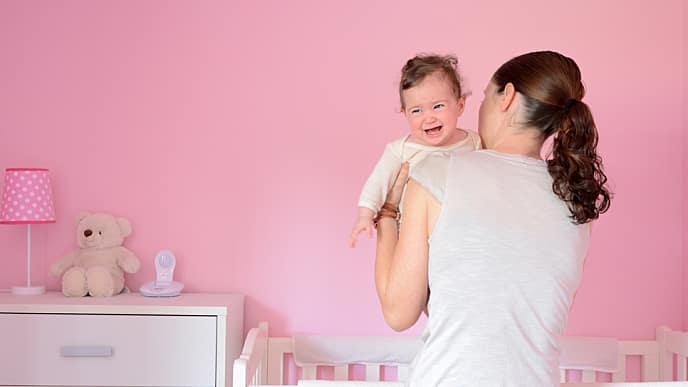As a parent, you become familiar with every one of your child's cries. One day there will be a new one: a cry that signals your baby is growing his first tooth. Before that new cry comes, here is some information all parents should know about when babies start to grow their first teeth and what they can do to alleviate their teething pain.
At What Age Do Babies Start Teething?
According to the Indian Dental Association (IDA), a baby's first tooth often appears anywhere from eight months to a year of age. The last teeth to grow in are usually the molar, or back teeth, which often start making an appearance anywhere from 13 months all the way up to 33 months.
When a tooth starts to break through the gumline the process will naturally cause your little one some discomfort. Some of the symptoms of teething include tender gums, drooling, irritability, trouble sleeping and gnawing and biting on toys. All of this is completely natural. Many of these symptoms will occur throughout the teething process, and every new tooth will take from a couple days to a few weeks to completely break through.
How to Alleviate Teething Discomfort
While babies start growing teeth at different ages, there's one thing they all have in common. Teething often leads to some discomfort, and babies need your help to ease their pain. The Babycenter recommends rubbing the gums with a clean finger, or even a moist gauze square. A teething ring, which can be frozen, is another way to make your child's teething process more comfortable.
Taking Care of Baby Teeth
Even before babies are done teething, be sure to keep every new tooth clean in order to avoid any tooth decay from baby foods and milk. While the teeth will naturally fall out in a few years, pediatricians recommend using a washcloth to wipe a baby's teeth after feeding time. The IDA also advises brushing your baby's teeth with a children's toothbrush and water. You can add a drop of fluoride toothpaste to the cleaning process after two years of age.
If you have further questions about when babies start teething, or concerns about your baby's teething, be sure to speak to a pediatrician or dentist.






